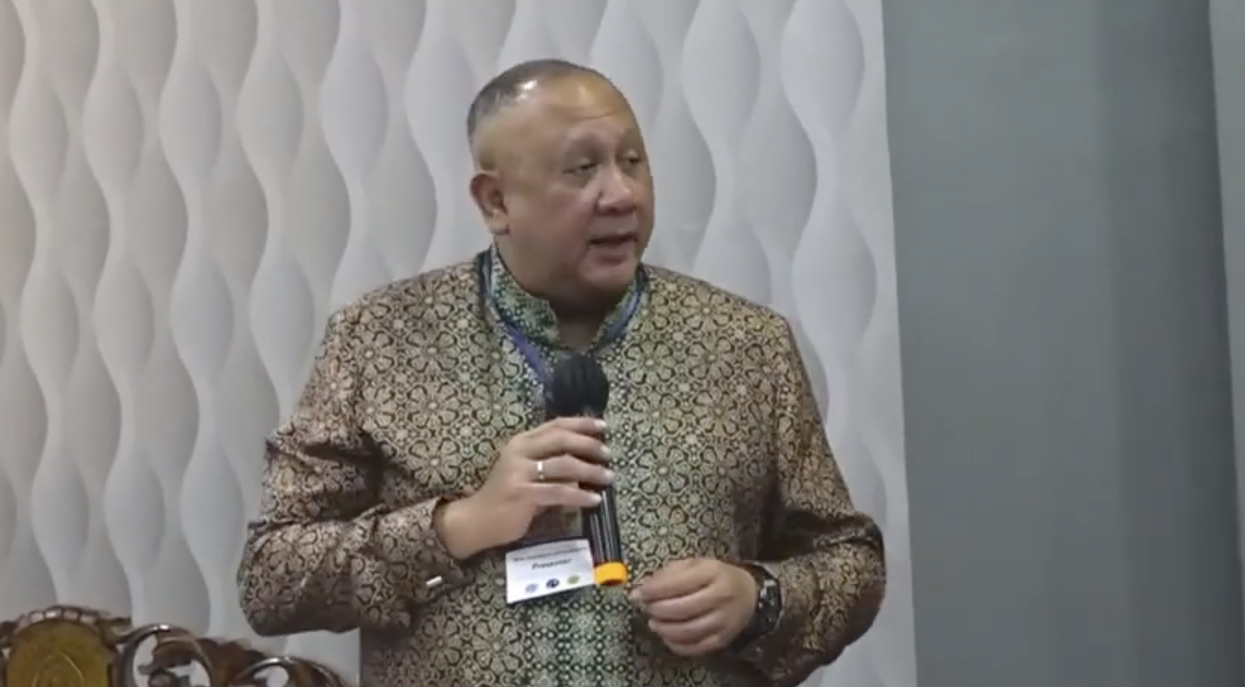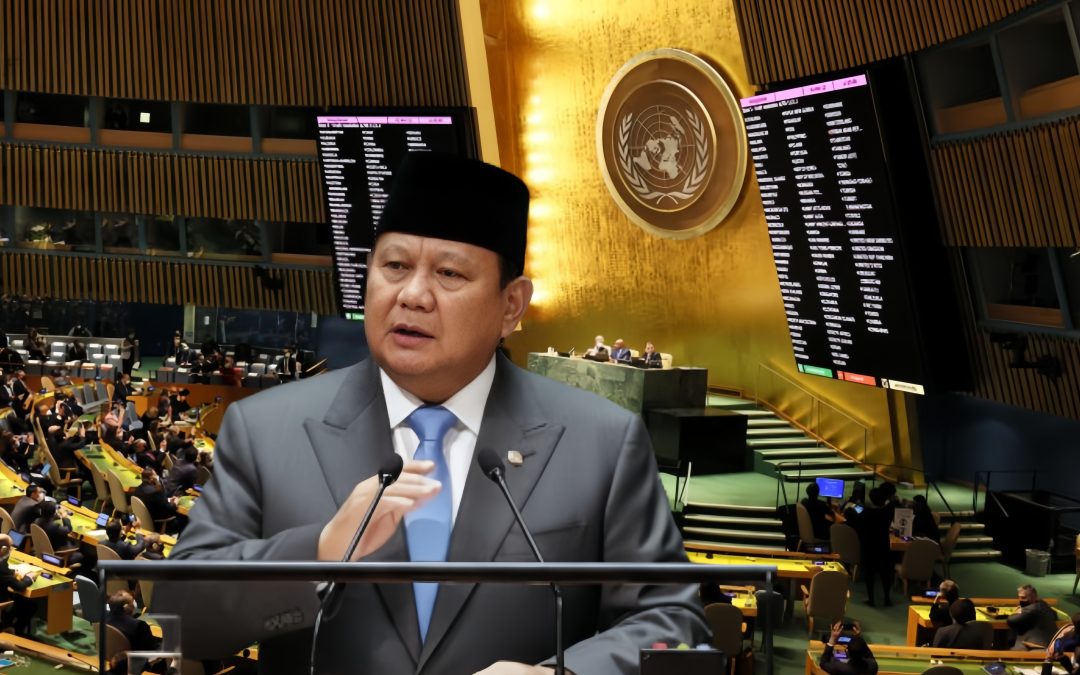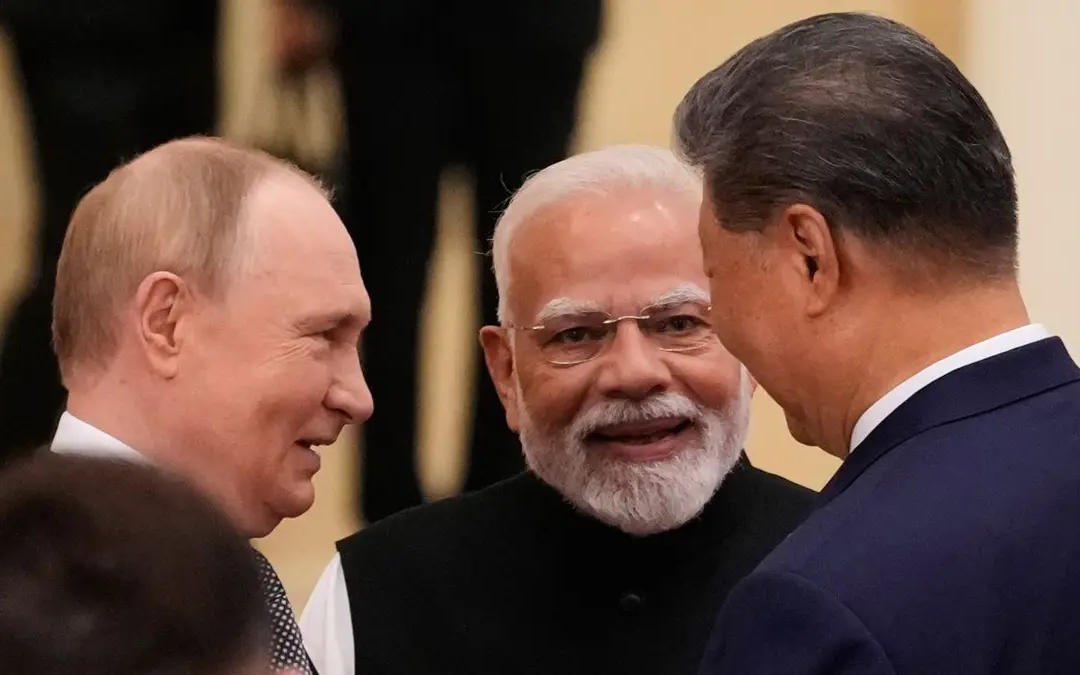The following is the excerpt of presentation by Mr. Rino Santodiono Donosepoetro, CEO, Standard Chartered Bank as keynote speaker at International Conference on International Relations 2024, 26 August 2024.
Climate Change as urgent global agenda
I think, we all know that climate change has been a dominating global’s agenda. It poses a threat to humanity, and when we talk about that, we are going to need to unmask the global commitment.
There are different kinds of commitments being made, all the series of COP meetings, indeed there has been a lot of talk and what I would call ‘green-wishing’ in which countries have great ambitions but the problem is that they don’t have the capabilities to deliver and execute.
Sustainability, net zero, climate transition, and all the rest of it. So many different types of commitments have been made, but are we taking enough actions? And the answer is no. The world is heading towards 2,5 until 2,9 degrees celsius as it stands right now with the current rate.
The last COP28 in Dubai, even if all countries deliver their pledges, it would only cover 30% of the total emission gap that we need to keep 1.5 degrees celsius by 2030. The many dimensions that we need to progress are net zero, how many just transition frameworks, climate resilient technology, carbon pricing, and so on. But one of the biggest barriers to progress is the lack of adequate financing for transition and decarbonization.
“.. One of the biggest barriers to progress is the lack of adequate financing for transition and decarbonization”
Transition requires a significant amount of capital and emerging countries need most of it. I’ll explain why. There are many projects that have been made, depending on how much capital needs to be made. This Data shows 135 trillion USD is required by 2030. About two fifths of that is required by the emerging markets.
Now, as a comparison, total GDP of the world as of last year is 105 trillion, and the size of total capital circulating in the world is about 120 trillion, of which only 15% of this is from the public sector. 135 trillion, all of this investment is needed for the decarbonization sector: energy transition, transport infrastructure, forest conservation
The problem is, only about 10% of the annual requirement is being met. This mirrors the whole capital movement of the world, where about two-thirds of the capital is actually still being invested within the OECD market.
So these capital owners are still perceiving the emerging markets as high risks. The point is, not enough capital is moving from the Global North to the Global South.
Global companies’s commitment to bring hope
However, a bit of a glimmer of hope, global companies are starting to make commitments to the net-zero now–around 9000. This is not only helping the acceleration of transition, but also to meet the demand of the voluntary carbon market. The second one, is global financial institutions who have created platforms to collaborate in addressing the challenge.
The establishment of various financing platforms and philanthropic bodies to accelerate foundation, too. But essentially, let me talk about the initiative that is likely to be adopted by Indonesia. Just Energy Transition Partnership, is essentially a public private collaboration platform that focuses on emerging countries to accelerate net zero. We have four: South Africa, Vietnam, Indonesia and Senegal. Indonesia has the largest commitment of JETP of 20 billion dollars. Ten billion is provided by the public sector, while the other is provided by the other global banks.
It is actually quite complex, but the point is it’s supposed to be an initiative to attract a whole lot more capital. This isn’t a one-to-one ratio, it has to attract ten times or even fifteen times of private capital. But the detail is that it’s basically about funding the right financing structure that could leverage the public sector.
Over the last few years, we have seen significant growth of sustainable finance, particularly in Asia. This year, we are set to grow by two trillion globally and 400 million dollars, but they are still trapped by different types of bonds. The point is, there is very little from the loan side–especially green loans.
On ASEAN, three things to call out. There has been a rising commitment: 9 out of 10 countries have committed to net-zero, we have other programs too, such as ASEAN Green Initiative, and many more to come. This transition landscape presents an opportunity on sustainable finance, about 1,5 trillion up to 2030 because that’s the need. Last, we have seen exponential growth of sustainable finance growth. This will cross over 100 billion–nowhere near enough, but it’s actually a massive growth since seven years ago it was only 9 billion.
Good progress around decarbonization in Indonesia
In terms of Indonesia, we have made good progress around decarbonization. We saw the start of a carbon pricing framework, and the government launched carbon exchange last year. The promising part is carbon credit which Indonesia has the largest potential, about 20 USD per ton. But let’s focus on the challenges.
Indonesia’s decarbonization is actually quite complex for the emerging market, but it can actually become a blueprint model if we can ‘crack the nut’ if we manage to transition faster. Take for example, we are dependent very significantly on fossil fuels. We have 85 gigawatt of power generation, about 60% is coming from coal, and another 20% from fossil fuels. If you see this, it’s similar–60% coal–to China, India, and other countries. But the difference is, Indonesia has a long term Purchasing Power Agreement (PPA). The average life of our PPA is around 30 years, so it’s still pretty young.
In addition, we are one of the largest coal exporters, and we have a domestic market obligation of 20%, which makes coal-powered power plants or coal-based energy very cheap, around two to three cents per kilowatt hour.
We are also an archipelagic nation. You cannot transition without transmission, that’s the problem. You have the renewable energy (geo, hydro, and the other), whose demands are outside of Jawa-Bali. You need those to carry the energy across the whole country.
But, Indonesia has the opportunity and at the same time, the biggest need for international collaboration and investment and we need to thrive to move the capital to where we need it the most.
The following is Mr. Donosepoetro’s response to the questions from the audience
On Just versus Necessary Transition
Rizky Aditya Ramadhan: I’m curious, your presentation mentioned a lot about the emerging markets. In 2020 and 2023, the Rockefeller Foundation proposed the ‘Coal to Clean’ credit program to the government of Indonesia. The idea is that they will fund coal-based initiatives in order to support longer term energy projects. However, some are concerned that this will be a slippery-slope into funding more fossil fuel-based projects. So, what are your reflections on clean coal-based projects, are they a necessary milestone, or is it more towards an ugly reflection of fossil fuel in Indonesia?
Rino S. Donosepoetro: Thank you, that’s a very good question. Rockefeller Foundation is working to become a philanthropic entity. So what they are planning to do is help Indonesia transition to net zero, but the point is: do I think that this is ‘just’ and necessary? How do we define a just transition?
One of the biggest issues for emerging markets is about how we define a just transition. In the simplest terms, for now coal is important for Indonesia. We can just build more renewables, we are also one of the largest coal exporters in the world–around 20%. That puts electricity generation really cheap, while solar and wind can’t really compete from a pricing perspective. Who’s going to finance that billions of dollars for renewables, then?
In order to help Indonesia accelerate, I think that international law needs to understand the balancing between the growth of the economy and electricity demand. You see a number of new coal power plants are being put up for the captive projects. As long as there is a goal and a pathway that is reasonable without sacrificing Indonesia’s economic growth potential, I think this is where international communities should help.
For example, the JETP has been criticized heavily. There are three parties there: the G7 government, the Indonesian government, and the private sector. Of course, for us in the private sector two years is a very long time for negotiation. This whole moratorium on captive has been debated heavily with a lot of national interests being involved. But setting that aside, the point is that the international world is full of complexity, even the emerging markets are not all the same. They’re all different and Indonesia is a good study case.
“Indonesia must have ambitious goals….. with decarbonisation pathways that are very clear”
The point is we have to align the private and public sector with how Indonesia transitions. Of course, Indonesia must have ambitious goals. Although we are allowing coal power plants to captive projects, but in 2050 the Indonesian government will put a stop to it. So it has to be accepted internationally. I think, Indonesia has the right to use the cheapest energy possible, but with decarbonisation pathways that are very clear.
On Net-zero emission as lifetime goal
Clara: I’ve found your presentation very captivating, the question is that we do believe that reaching net-zero emission is a lifetime goal as a nation–which is also hard to achieve. But I want to know your perspective on ASEAN. How do you think ASEAN can capitalize on the opportunity in the region to accelerate its net-zero emission transition. And what’s really interesting is that you mentioned earlier that transition without transmission is nothing. We need financing and investment, so perhaps you can elaborate your perspective, or Standard Chartered’s role too? Because we believe that we have a huge financing gap between Asia and other regions.
Rino S. Donosepoetro: That is actually a lot of questions, and let me answer them one by one. Yes, it’s a very uphill task for humanity and the world. But the point is that this is an existential issue. At one point, the Earth will not be livable–and those dystopian scenarios are not quite far-fetched.
Even now at COP28, they focus a lot on climate adaptation and mitigation, and that’s a different one than decarbonization. The point is that we must do it. There are still some things that the world can do, still. I have to say that combating climate change would need a lot of collaboration: with NGOs, private sectors, capital owners, and the likes. I think the view is quite fragmented and misaligned.
I mentioned various companies trying to reach net-zero and they’re putting targets. But they operate on different taxonomies and standards, let’s say from the OECD one or the EU one. There’s a lot of NGO’s pressure over there. Some of them are quite progressive in terms of demanding. The problem is that many of the financial institutions are also being influenced and there’s a lot of do’s and don’ts.
We want to help transition in the market, but there is a specific position statement that we have to make due to this ‘non-governmental actor’ influence. For example, any companies in Indonesia by this year can help with the transition if they reduce their coal revenue dependency gradually each year. The complexities of that matter are very difficult. We finance one large company in Kalimantan, for example, now we can’t anymore, because they won’t achieve that reduction of coal revenue. But at the holding company level, they have been investing significantly on renewable energies or financing wind and solar projects. That can offset their overall dependence on coal.
The world has to be aligned. What I’m saying is that–from a broader perspective–every country has to be on pace. There are some of the things that clog the flow of capital and funds to where it’s needed the most. And regarding Standard Chartered, we have made a commitment, that is the ISG criteria years ago. We will achieve net-zero by next year, we will offset the emissions from our buildings and other things.
“The world has to be aligned …. from a broader perspective- every country has to be on pace.”
All the financing that we do, they would all have to be net-zero too. That’s quite a big step, we have committed to mobilize 300 billion USD from the emerging markets. In Indonesia, we are quite proud that we have the largest floating solar power plant in Cirata. Hopefully JETP comes back to that point, and hopefully we are able to finance some of the future projects. It’s purely non-commercial, to be completely honest. What is needed is not commercially-viable plans, all of these are loss-making projects, but we have to do that. For Indonesia, it’s super important because of the ‘coal-trapping’ otherwise we won’t be able to move forward.







